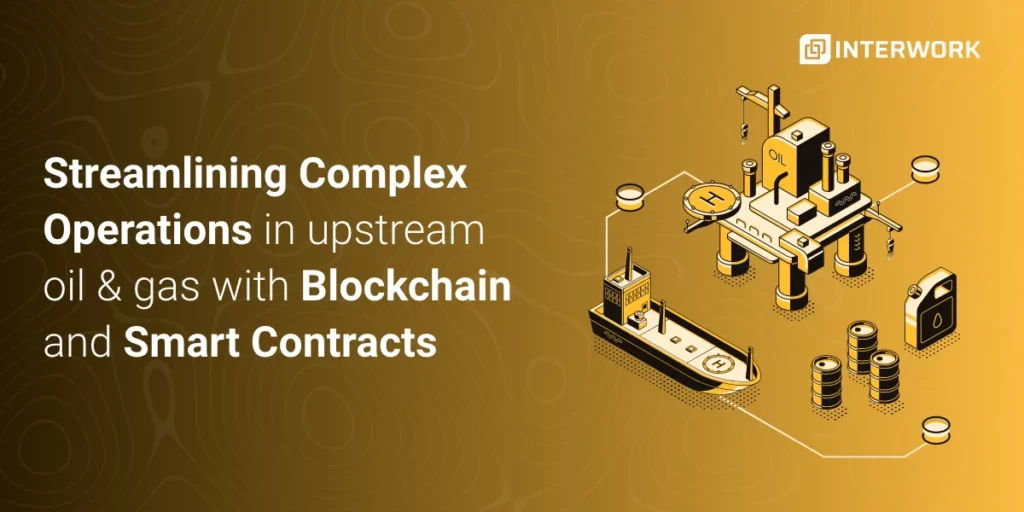How IoT and 5G Are Shaping Automotive Technology
The car manufacturing sector is altering the major trend in…

With the global economy forecasted to grow four-fold by 2050, projections foresee a 70% increase in the demand for oil and gas to fuel the growth.
The Oil and Gas (O&G) business operates within complex global and national frameworks. Expansion into new geographical regions and environments such as ultra-deep-water drilling is creating new opportunities for revenue growth.
At the same time, it is also increasing the risk and complexity of the business operations themselves. Furthermore, ever-changing regulatory frameworks enforced by different countries’ governments – such as those designed to limit carbon emissions – are adding to the growing complexity and scrutiny that O&G enterprises are operating within.
The O&G industry is divided into three segments — upstream, midstream, and downstream. The ‘upstream’ segment is regarded as one of the most complex and technology-heavy portions of the O&G industry. Also known as ‘Exploration and Production’ (E&P), upstream O&G consists of the high-risk exploration for natural resources and their extraction from their repositories.
Upstream O&G production is conducted by companies that identify, extract, or produce raw materials. These companies all operate under different performance metrics, deliverables, and contract details. The coordination, performance attestation, and data reconciliation across these dozens of companies are consistently a point of friction for energy companies and lead to inefficiencies that cost time and affect the bottom line.
The upstream segment of oil and gas becomes an obvious use case for blockchain adoption!
Some of the complex operations of the ‘upstream’ segment streamlined by Blockchain for the Oil and Gas Industry are as below:
The number of companies involved in the E&P means an extraordinary amount of disparate data, project attestation, and accountability. So data reconciliation between companies is a slow, burdensome, and manual process. Currently, it can take 45 days to prove that a well or rig was staffed in the appropriate order and with the appropriately-certified individuals.
On a shared, Blockchain for Oil and Gas one’s identity and related certifications are automatically recorded when a worker boards the rig, and the sequence of workers is transparent and immutable to all who have data access. A blockchain-based smart contract can automatically structure that data into a digestible format, removing the need for manual re-organization.
Performance-based Contracts (PBC) are contracts based on the completion of a task. Currently, the key challenge with PBCs is that it is difficult for groups to “attest” to their work being done in order to fulfil the contract.
Blockchain-based PBCs work through a series of smart contracts- coded to get autonomously executed based on pre-defined terms and conditions of the transaction. Such as when a certain group has completed their immediate task on the well, they “attest” to the work being completed.
Before drilling, companies within the upstream segment of O&G must determine who exactly has ownership over the land in order to receive permission and direct payments. The process of determining land rights is very laborious, extremely manual work and flipping through tones of wills, deeds, and land sales.
Tracking land ownership and rights on a blockchain platform is one of the most highly-viable use cases of blockchain technology. For O&G companies, blockchain-based rights records would provide a single, clear, immutable record of who owns what land and what minerals.
Many oil and gas organizations across the globe are looking to introduce Distributed Apps (dapps) to revolutionize the way they manage their upstream operations. Joint ventures are common in the oil and gas industry and generally require a suite of complex agreements which could be implemented as smart contracts. Using distributed ledger to record joint venture transactions and smart contracts to describe, negotiate, and execute the contractual conditions will provide all involved parties – with transparency on what has occurred.
The upstream segment has a lot to benefit from Blockchain for Oil and Gas, from efficiency to transparency to immutability. Upstream, among O&G processes, requires the involvement of dozens of stakeholders, all of whom rely on the data of others. Blockchain technology succeeds at optimizing such as wide-scale, multi-party coordination. In addition to process transparency and optimization, Blockchain Distributed Applications (dapps) and smart contracts bring business value by lowering costs and risk and increasing workflow efficiency.